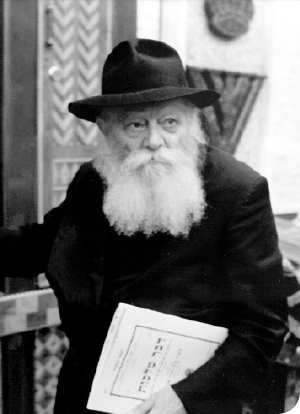ALL JEWS SHALL RISE IN OLAM HA’T’CHIYA: PART 6
The verse, “And they shall go out and see the corpses of the people who rebelled against Me, for … their fire shall not be quenched,” which speaks of eternal damnation refers to the sinners of the Gentile nations, whereas rebellious Jews “are punished only momentarily in Gehinom, before Avrohom Avinu comes and lifts them up from there (meaning that he acquits their judgement) and (even) greets them.”
Translated by Boruch Merkur (Continued from last issue)
 Another relevant discussion in Eiruvin (19a): The verse, “And they shall go out and see the corpses of the people who rebelled against Me, for … their fire shall not be quenched” (Yeshayahu 66:24), [which speaks of eternal damnation] refers to the sinners of the Gentile nations, whereas rebellious Jews “are punished only momentarily in Gehinom, before Avrohom Avinu comes and lifts them up from there (meaning that he acquits their judgement) and (even) greets them. The exception is a Jew who has relations with a Gentile woman, etc.” Even in the latter case, Tosafos interprets it to mean that this Jew does not ascend from Gehinom right away; he remains there, rather, for twelve months (Bava Metzia 58b, entry beginning “Chutz”).
Another relevant discussion in Eiruvin (19a): The verse, “And they shall go out and see the corpses of the people who rebelled against Me, for … their fire shall not be quenched” (Yeshayahu 66:24), [which speaks of eternal damnation] refers to the sinners of the Gentile nations, whereas rebellious Jews “are punished only momentarily in Gehinom, before Avrohom Avinu comes and lifts them up from there (meaning that he acquits their judgement) and (even) greets them. The exception is a Jew who has relations with a Gentile woman, etc.” Even in the latter case, Tosafos interprets it to mean that this Jew does not ascend from Gehinom right away; he remains there, rather, for twelve months (Bava Metzia 58b, entry beginning “Chutz”).
But this proof can be qualified by the Tosafos “Poshei” (end of Chagiga, 27a*), where it says that this redemption from Gehinom does not extend to “poshei Yisroel b’gufam – Jews who sin with their bodies” [meaning Jews whose “skulls never donned t’fillin” ––Rosh HaShana 17a]. Nevertheless, this Tosafos in Chagiga does not present a difficulty for the Tosafos in Eiruvin that interprets the verse in Yeshayahu as referring to Gentile sinners not “Jews who sin with their bodies,” for this is a more acceptable approach, v’dochek. However, some additional analysis of the above Tosafos is required in light of the Tosafos “Ki” in Rosh HaShana (17a).
Now, the general principle that every single Jew will ultimately cleave to his or her Divine source [and not be cut off and deprived of Olam HaBa] is derived from Scripture from the verse, “He devises means whereby the banished are not cast from Him” (Shmuel II 14:14). The Alter Rebbe in Shulchan Aruch “Laws of Torah Study” (4:3) interprets this verse: “A wicked person will [ultimately] repent, either in this incarnation or in another incarnation, as it is written, for ‘the banished are not cast from Him.’” Also, in Tanya (Ch. 39, end): “Certainly he will eventually repent, in this incarnation or another incarnation, ‘for the banished are not cast from Him.’” Also see below on this matter.
(Though some further analysis is required as to what Ramban writes in Shaar HaG’mul (55), entry beginning with the words, “V’achshav nachzor”: “‘The banished are not cast from Him’ except for those who do not stand up to judgment, who are cut off by it and perish there.”)
NOTE:
*“‘The fire of Gehinom does not rule over [even] the sinners of the Jewish people, etc.’: It appears to me that this exemption does not apply to ‘poshei Yisroel b’gufam – Jews who sin with their bodies,’ regarding whom it says in Rosh HaShana 17a, ‘Gehinom will terminate but they will not terminate’ [rather their punishment will continue]. Thus, here [in Chagiga] the Gemara refers to Jews who only partially rebel …”
(To be continued be”H)
(From a letter dated Monday, the 16th of Tammuz 5703;
Igros Kodesh Vol. 1, pg. 141 ff.)
 July 19, 2018
July 19, 2018
Reader Comments